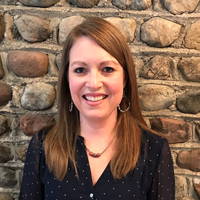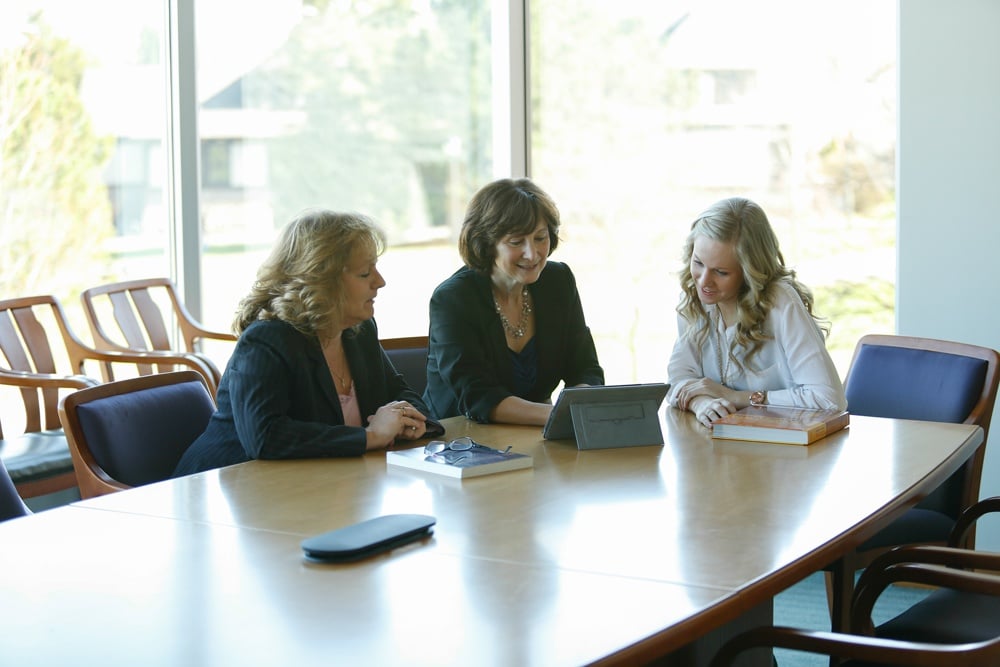Happy New Year! I realize 2020 was likely a challenging year for many of you for several reasons. However, I genuinely hope that through the difficulties, you came out with new revelations and had the opportunity to learn something new about yourself - something that will make you a better person in whatever role(s) you fill in 2021. I know, I certainly had a number of those situations, and although not always easy to handle, they’ve managed to put me in my place, something I feel we as leaders need to experience from time to time. So, I will explain the background of a couple of these instances, describe the lessons learned, and share some tools that I plan to personally utilize to move forward more effectively as a leader in 2021.
The Situations…
In all honesty, I'd say the months of November and December were two of the toughest months of the year. Group presentations were due one week after another, my work schedule was fierce, my grandmother passed away, studying for my licensing exam became a priority, my first review under new leadership was conducted, and holiday plans were constantly changing. I can’t forget about the pressure of being a Mom, organizing classroom treats and gifts, fulfilling the role of Santa and the Elf on a Shelf, and trying to stay focused on the real meaning of Christmas. Additionally, everyone I dealt with also had their own lists of difficult situations they were dealing with, and emotions were relatively high and fragile. During this time, two situations truly put me in my place and will help me better navigate my actions as a leader in 2021.
Group Work and Group Presentations…
Anyone who has had Dr. Hoomans knows that he’s a huge proponent of group work. After his course, it becomes apparent why, but it's rather challenging and time-consuming when you're in the trenches. I was paired with two other incredibly smart, strong-willed, and driven ladies for this last course. We identified early on that because of our strong personalities, it would be best to each take on the role of leader for one of three presentations and be followers for the other two. This approach paired nicely with Robert Kelly's teachings, especially to his point that "groups with many leaders can be chaos" (1988, p. 148). I anticipated we’d all perform as exceptional leaders and followers, but that wasn’t necessarily the case. By the time the third presentation rolled around, issues had developed, Zoom meetings had erupted in conflict, and emails addressing issues circulated around. By the night of the presentation, it’s fair to say we were all at the point of mustering up whatever energy we had left to come across polished and professional, but as a team, we were broken. I don’t believe any one of us walked away thinking that this was an exceptional experience or one that reflected positively on ourselves. It was one that personally put me in my place. It was apparent that my skills as a follower and leader needed brushing up.
The Review…
I’m not going to lie; I wasn’t looking forward to my latest work review. Between new leadership and a new position, I knew it would be different from years past, and there would be things pointed out that I would need to improve. As a frequent self-assessor, consciously knowing what needs to improve versus seeing it on paper and hearing it out loud are two different things. Luckily, I agreed with most of the points; however, my manager brought a situation to my attention that stunned me.
The short story is that an employee and I had a conversation about a situation that occurred, and I thought it was settled from the positive interaction we had. This conversation was later brought to my manager’s attention and brought up in my review. Between genuinely feeling bad about the misunderstanding, trying to live by the company’s core values of honesty and transparency, and not feeling as if this was what Mark Gerzon refers to as a hot or cold conflict, I decided to talk to this employee for a second time (Gerzon, 2014). Again, the conversation was pleasant, and we both agreed the situation was hugely misunderstood, and there were no hard feelings. I later excitedly let our manager know that we had talked about the issue, it was, in fact, a misunderstanding, and we resolved it. My excitement quickly dissipated, though, as he grew upset and let me know my co-worker brought this conversation to his attention again. He sternly asked me to let it go, of which I promised to do. Here I was, put in my place once again. However, this was a harder pill to swallow because it came from my manager, and I honestly still didn't understand the issue.
Lessons Learned…
Based on these situations, I want to share a few of the lessons I eventually came to learn.
Lesson #1 – Based on what I had going on in my life at the time, I probably wasn't acting like my best self. I've learned that even though I drink my morning coffee from a Wonder Woman mug, I can’t be her. I do have a breaking point, which doesn't necessarily come across well to others. I need to pay closer attention to those signs and find more time for rest, relaxation, and rejuvenation.
Lesson #2 – It’s not always going to be easy being a leader and a follower, especially when working with other people. People, including myself, are messy, and I'm going to go out on a limb and say people were probably even messier than usual in 2020. I need to realize there may be more going on with a person than what’s on the surface, so I need to listen, empathize, and let some things go.
Lesson #3 – People don't always take things the way it’s intended to come across, and phrases I’m not easily offended by can be offensive to others. It’s important I take the time to choose my words carefully, and it’s essential to circle back to make sure everyone is on the same page and clear up anything in the moment that may have come across incorrectly. Providing a non-confrontational environment to speak openly and honestly is critical for this as well.
Lesson #4 – Being honest and transparent is not a value that everyone immediately feels comfortable displaying. I probably possess too much of this, but I've realized that encouraging others to be honest and transparent takes time and trust. When someone is explaining their feelings, I mustn't push back as it may cause them to hold back or feel inferior. Each positive interaction builds trust and increases the probability of open and honest conversations in the future.
Tools to Successfully get through 2021…
Based on the situations and the lessons I’ve learned, there are tools I’ve gathered from my coursework that I plan to proactively put into practice in 2021. I’d encourage you to try them as well, but remember, each situation may call for a different tool or a variety of them, and positive results don’t always happen immediately. So, don’t give up after any failed attempts.
#1 – Find a mentor - Talking to a trusted person who will be honest and unbiased can help you learn from their experiences and shed light on situations you’re encountering.
#2 – Practice empathy- Putting yourself in others' shoes can help you see things from their perspective and bring clarity to the situation.
#3 – Listen – By listening to the parties closest to the situation, solutions may quickly and easily unveil themselves.
#4 – Forgive – A line from Jesus CEO that comes to mind is, “A forgiving attitude creates forward motion” (Jones, 1995). We need to forgive. Remember, we’re all messy!
#5 – The Platinum Rule – I was brought up to follow the Golden Rule found in Matthew 7:12, which states, "Do unto others as you would want to be done to you" (YouVerson, 2021). However, the Platinum rule was introduced to me a couple of years ago, which states, “Do unto others the way they would have you to do unto them” (Rath & Clifton, 2015). Everyone isn't like you; therefore, they may desire to be treated differently.
#6 –Assessment – Good leaders should regularly assess their strengths and weaknesses. You can do assessments by analyzing situations you've encountered, gathering feedback from others, or completing questionnaires and surveys.
#7 – Rest – Actively finding time to rest will recharge your battery, refill your bucket, and make you a better version of yourself.
#8 – Core values – If you don’t know your core values, I encourage you to identify them. Once you know them, use them as a guidepost for the situations you face.
Conclusion…
I share my situations in hopes that you may be able to relate and use my moments of being put in my place to learn valuable lessons and identify tools to utilize in similar situations that may arise. Remember, none of us are perfect! Leadership development takes time and is an ever-evolving process. Just because a situation or someone put you in your place doesn't mean you're a lousy leader. It just uncovers a flaw that needs some improvement. Again, Happy New Year, and I look forward to sharing my leadership walk with you in the months to come.
References
Gerzon, M. (2014). To resolve a conflic, first decide: is it hot or cold? Hardvard Business Review, 1-4.
Greenleaf, R. K. (2008). The servant leader. Atlanta: Greenlead Center for Servant Leadership.
Jones, L. B. (1995). Jesus, CEO. New York: Hachette Books.
Kelly, R. E. (1988). In praise of followers. Harvard Business Review, 142-148.
Rath, T., & Clifton, D. O. (2015). How full is your bucket? New York: Gallup Press.
YouVerson. (2021, January 1). Matthew 7:12. Retrieved from Bible.com: https://www.bible.com/bible/111/MAT.7.12.NIV











